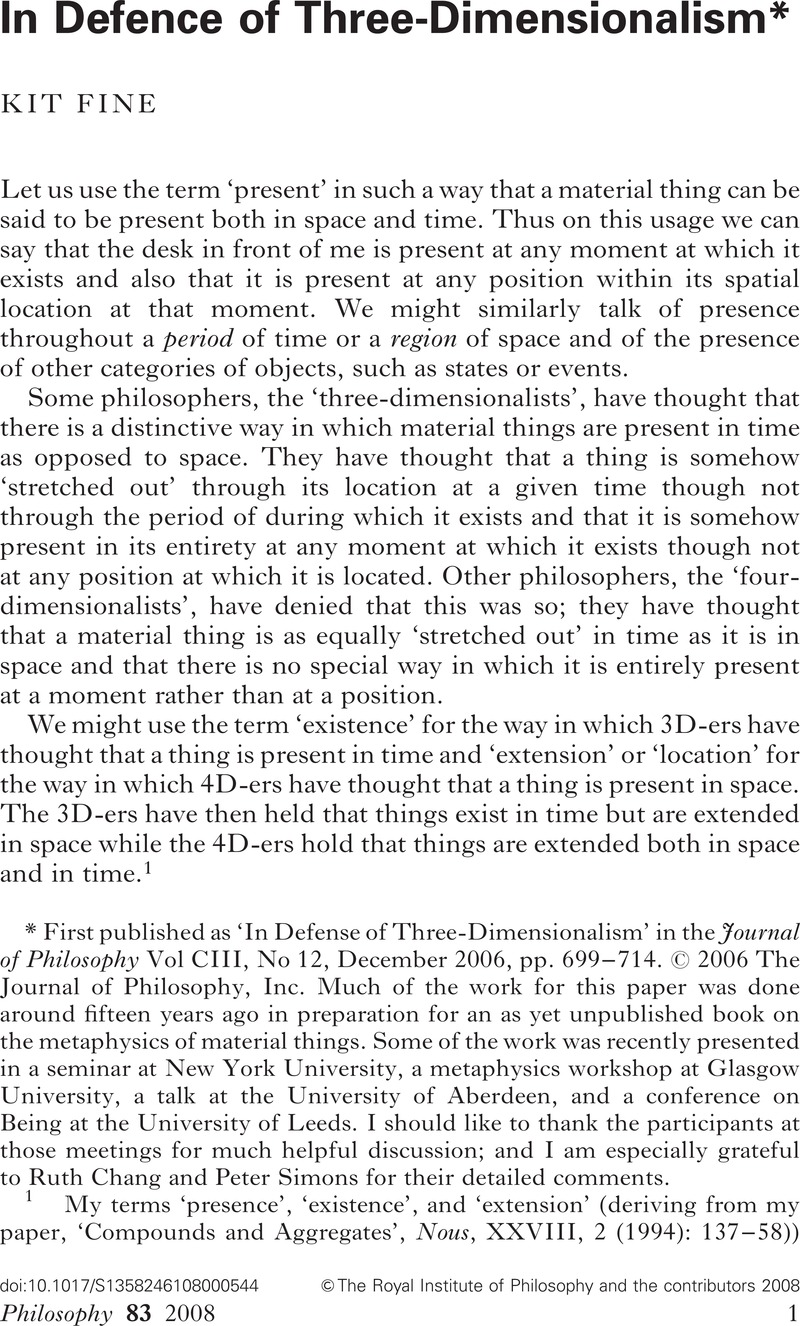Published online by Cambridge University Press: 25 June 2008

1 My terms ‘presence’, ‘existence’, and ‘extension’ (deriving from my paper, ‘Compounds and Aggregates’, Nous, XXVIII, 2 (1994): 137–58)) correspond to the more familiar terminology of ‘persistence’, ‘endurance’, and ‘perdurance’. I prefer my own terminology since it is somewhat more general, allowing one to talk of existence or extension at a moment when one cannot very well talk of endurance or perdurance at a moment and allowing one to talk of existence or extension in space when one cannot very well talk about endurance or perdurance in space.
2 As, for example, in Sider, Theodore, Four Dimensionalism (New York: Oxford, 2001)CrossRefGoogle Scholar.
3 The difficulties with the mereological formulation and the connection between the various formulations will be further discussed in a forthcoming paper, ‘The 3D/4D Debate’.
4 Some authors have recently attempted to frame the 3D/4D dispute in locational rather than mereological terms, but by appeal to the notion of exact occupancy rather than the distinction between existence and extension (see, for example, pp. 103–04 of Hawthorne, John, Metaphysical Essays (New York: Oxford, 2006)CrossRefGoogle Scholar). However, it seems to me that the distinction is more basic and that exact occupancy is to be understood in terms of the distinction rather than the other way round.
5 One can perhaps say that Plato existed in Athens but it is a more episodic use of the term that is here in question and, on this use, one cannot sensibly say ‘Plato exists (right now) in the Academy’.
6 I am taking the quart of milk to be a quantity whose immediate material composition cannot change from one moment to the next. This kind of case and some of its implications are further discussed in my paper, ‘Compounds and Aggregates’.
7 This is most naturally taken to mean that it occurs exactly at the same time or period of time in question, although there is an attenuated sense in which it might be taken to mean that it occurs partially at the time or period of time in question.
8 It is for this reason that we may meaningfully talk of a thing gaining or losing or retaining its parts though not of an event gaining or losing or retaining its parts.
9 I here have ‘episodic’ events in mind rather than ‘ongoing’ events or processes. One might perhaps argue for a closer analogy to things in the case of processes.
10 Difficulties of this sort are further discussed in my paper, ‘Things and their Parts’, in French, Peter A. and Wettstein, Howard K., eds., New Directions in Philosophy: Midwest Studies in Philosophy, Volume XXIII (Malden, MA: Blackwell, 1999), pp. 61–74Google Scholar.